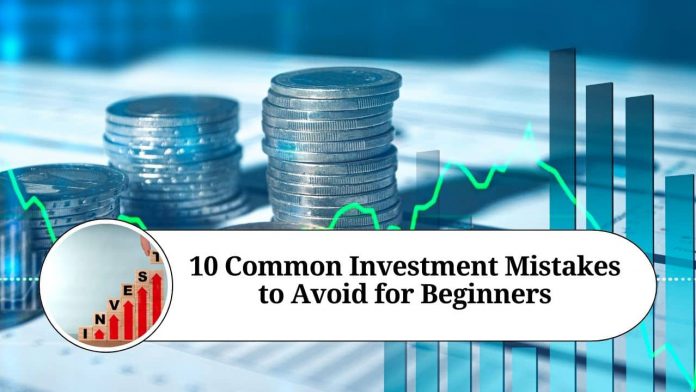Best Mutual Funds to Invest Today
Mutual funds are a popular investment option for many people. They provide diversification, professional management, and are easy to buy and sell. With so many mutual funds available, it can be challenging to decide which ones to invest in. In this blog, we will discuss the best mutual funds to invest in today.
Large-Cap Funds
Large-cap funds invest in stocks of large companies with a market capitalization of over $10 billion. These companies are typically well-established and have a proven track record. Large-cap funds are less volatile than mid-cap and small-cap funds and are ideal for investors who are looking for stability and consistent returns. Some of the best large-cap funds to invest in today include the Vanguard 500 Index Fund and the Fidelity 500 Index Fund.
Mid-Cap Funds
Mid-cap funds invest in stocks of medium-sized companies with a market capitalization of $2 billion to $10 billion. These companies have the potential for growth and are more volatile than large-cap companies. Mid-cap funds are ideal for investors who are willing to take on some risk to achieve higher returns. Some of the best mid-cap funds to invest in today include the T. Rowe Price Mid-Cap Growth Fund and the Vanguard Mid-Cap Index Fund.
Small-Cap Funds
Small-cap funds invest in stocks of small companies with a market capitalization of under $2 billion. These companies are typically younger and have the potential for rapid growth. Small-cap funds are the most volatile of the three types of funds but also have the potential for the highest returns. Some of the best small-cap funds to invest in today include the T. Rowe Price Small-Cap Stock Fund and the Vanguard Small-Cap Index Fund.
International Funds
International funds invest in stocks of companies outside of the United States. These companies offer exposure to different markets and economies, providing diversification benefits. International funds can be further broken down into developed market funds, emerging market funds, and global funds. Developed market funds invest in companies in developed economies such as Europe and Japan. Emerging market funds invest in companies in developing economies such as China and India. Global funds invest in companies from both developed and emerging markets. Some of the best international funds to invest in today include the Vanguard Total International Stock Index Fund and the Fidelity International Index Fund.
Bond Funds
Bond funds invest in a diversified portfolio of bonds. Bonds are a type of fixed-income security that pays a fixed rate of interest over a specified period. Bond funds are less volatile than equity funds and provide a regular stream of income. Bond funds can be further broken down into government bond funds, corporate bond funds, and high-yield bond funds. Government bond funds invest in bonds issued by the government. Corporate bond funds invest in bonds issued by corporations. High-yield bond funds invest in bonds issued by companies with lower credit ratings, offering higher returns but also higher risk. Some of the best bond funds to invest in today include the Vanguard Total Bond Market Index Fund and the PIMCO Income Fund.
Conclusion
In conclusion, mutual funds are an excellent investment option for many people. By diversifying across different types of funds, investors can achieve a balanced portfolio and reduce their risk. The best mutual funds to invest in today depend on an individual’s investment goals and risk tolerance. It is always important to do thorough research and consult with a financial advisor before making any investment decisions.
Other Related Blogs: Section 144B Income Tax Act
Frequently Asked Questions (FAQs)
Q.What is a mutual fund?
A mutual fund is a type of investment vehicle that pools money from multiple investors and invests it in a diversified portfolio of stocks, bonds, or other securities. Mutual funds are managed by professional fund managers who make investment decisions on behalf of the investors.
Q.What are the benefits of investing in mutual funds?
Mutual funds offer several benefits, including diversification, professional management, ease of buying and selling, and liquidity. By investing in a mutual fund, investors can access a diversified portfolio of securities without having to purchase individual stocks or bonds.
Q.What types of mutual funds are available?
There are several types of mutual funds available, including large-cap funds, mid-cap funds, small-cap funds, international funds, bond funds, index funds, and sector funds.
Q.How do I choose the right mutual fund for me?
Choosing the right mutual fund depends on your investment goals, risk tolerance, and investment time horizon. It is important to consider factors such as the fund’s investment strategy, past performance, expense ratio, and fees.
Q.What is an expense ratio?
An expense ratio is the annual fee charged by a mutual fund to cover its operating expenses. It includes fees such as management fees, administrative fees, and other expenses associated with running the fund. The expense ratio is expressed as a percentage of the fund’s assets under management.
Q.Can I lose money investing in mutual funds?
Yes, investing in mutual funds involves risks, and investors can lose money. The value of the fund’s investments can go up or down, and there is no guarantee that the fund will achieve its investment objectives.
Q.How do I buy and sell mutual funds?
Mutual funds can be bought and sold through a brokerage account or directly from the fund company. Investors can typically buy or sell mutual funds at the end of the trading day at the fund’s net asset value (NAV).
Q.Do I need a financial advisor to invest in mutual funds?
While it is not necessary to have a financial advisor to invest in mutual funds, it can be helpful to consult with a financial professional to develop an investment strategy that aligns with your goals and risk tolerance. A financial advisor can also help you navigate the complexities of the investment landscape and provide guidance on investment decisions.
Q.What are the tax implications of investing in mutual funds?
Mutual fund investments can have tax implications, including capital gains taxes and taxes on dividend income. Investors should consult with a tax professional to understand their specific tax situation and how it relates to their mutual fund investments.
Q.How often should I review my mutual fund investments?
It is recommended to review your mutual fund investments periodically to ensure they align with your investment goals and risk tolerance. Factors such as changes in market conditions, the fund’s performance, and changes in your financial situation may warrant a review of your investment portfolio.




















